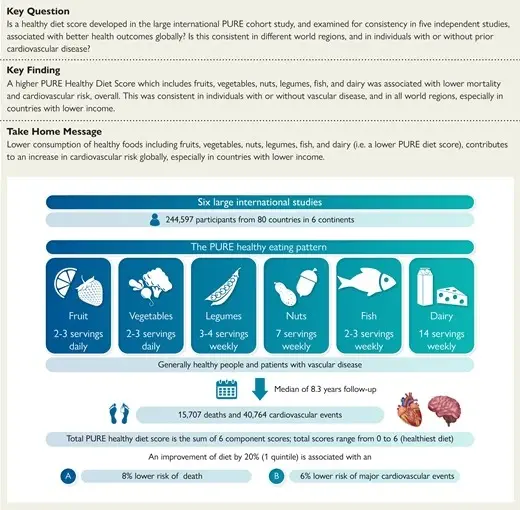Consuming fruits, vegetables, legumes, nuts, fish and whole-fat dairy products is key to lowering the risk of cardiovascular disease, including heart attacks and strokes. The study also found that a healthy diet can be achieved in various ways, such as including moderate amounts of whole grains or unprocessed meats.
The World Health Organization estimates ~18 million people died from cardiovascular disease in 2019, representing 32% of all global deaths. Of these deaths, 85% were due to heart attacks and strokes. Population Research Health Institute researchers and their global collaborators analyzed data from 245,000 people in 80 countries from multiple studies.



Sigh. Sure, there is nothing wrong with eating those foods. But how about stopping the overconsumption of ultra-processed food instead?
I’m tired of all these articles that seem to promote the consumption of some magic bullet food as if eating more of that is the solution to all our dietary problems. No it isn’t. Cut out all the garbage and just eat whole foods instead.
The two go together since you typically eat a fix amount of food per day, so more ‘good’ food also means less ‘bad’. Quotes because the same applies to fad diets that promote aweful eating habits as well.
Totally agree. You and I get that, but a lot of other people won’t. Take the whole olive oil thing as an example. You can switch your cooking oil, but if you’re still eating (for example) loads of sugar and large quantities of processed food it’s not going to make much of a difference is it?
For what it’s worth they mention this at the section “strengths and limitations” near the end (bold is mine) and it’s quite a long read.